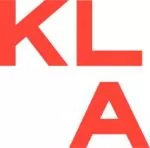- within Accounting and Audit, Food, Drugs, Healthcare and Life Sciences topic(s)
Tax newsletter brings this and other news, such as a decision by the STJ that determines that contributions to System S should not be limited to 20 minimum wages
In this Tax Law newsletter, you will find:
- CNI files lawsuit in the Supreme Federal Court against the Tax Incentives Law
- STJ rules that the contributions to the S System (Third Party Entities) are not limited to 20 minimun wages
- STJ rules that credits from judicial decisions should me taxed after its enrollment before the Federal Revenue
- STJ modulates the decision of exclusion of ICMS-Substitution form the PIS/Cofins basis
- STJ decides that TUST and TUSD should bem ICMS basis
CNI files lawsuit in the Supreme Federal Court against the Tax Incentives Law
CNI (National Confederation of Industry) has filed a lawsuit (ADI 7604) in the Supreme Federal Court (STF) to challenge the new method of federal taxation upon tax incentives established by Law 14.789/23.
CNI argues that this new approach violates the principle of federalism because the Federal Government would be appropriating part of the patrimony of the states, which offered the subsidies with the aim of promoting economic and social development in their regions.
Furthermore, CNI sustains that subsidies have certain restrictions or conditions, and should not be considered as revenue, since the values are not freely available.
The same law has been challenged by ADI 7551, filed by the Liberal Party, in the same grounds.
These cases have not yet been scheduled for trial, but they may trigger important decisions for the future of companies regarding the taxation of these benefits.
STJ rules that the contributions to the S System (Third Party Entities) are not limited to 20 minimun wages
On March 13th 2024, the Superior Court of Justice (STJ) decided on special appeals nos. 1898532/CE and 1905870/PR and concluded that the limit of 20 minimum wages is no longer applicable to the contributions to third parties (to the S System) that levy upon payroll.
The Court also limited the effects of the decision, to protect those who had favorable judicial or administrative decisions before the beginning of the trial on October 25, 2023. These taxpayers may benefit from the limitation of 20 minimum wages until the date of this new ruling.
The case concerns a repetitive matter (Theme 1079), which means its outcome must be applied by the other courts across the country.
STJ rules that credits from judicial decisions should be taxed after its enrollment before the Federal Revenue
The 2nd Panel of the Superior Court of Justice (STJ), ruled on the Special Appeal No. 2071754/SC that the taxation of Corporate Income Tax (IRPJ) and Social Contribution on Net Income (CSLL) on credits recognized by judicial decision should only occur after the taxpayer's request for enrollment with the Federal Revenue Service is granted.
According to the Court, once the registration is granted, the income would be legally available and should be subject to income taxation.
As a result, the National Treasury's request was denied, which sought to have the credits considered taxable income immediately after the judicial decision recognizing the right to offset.
This trial is not binding, even though is an important precedent. The matter is still to be further analyzed by the Superior Court.
STJ modulates the decision of exclusion of ICMS-Substitution from the PIS/Cofins basis
The Superior Court of Justice (STJ) ruled in the judgment of Special Appeals nos. 1,898,678 and 1,958,265 (Theme 1125) that its decision regarding the exclusion of ICMS-ST (State VAT tax substitution) from the calculation base of PIS and Cofins will only have effects from the judgment record, on December 14th, 2023 onwards.
The rapporteur of the appeals, Justice Gurgel de Faria, choose this approach to follow the line established by the Supreme Federal Court (STF) in the judgment of Theme 69, which determined the exclusion of ICMS (VAT tax) from the calculation base of PIS/Cofins.
The limitation does not apply to ongoing judicial proceedings and administrative procedures discussing the same subject matter.
STJ decides that TUST and TUSD should be ICMS basis
The Superior Court of Justice (STJ) decided that the Transmission System Usage Tariff (TUST) and the Distribution System Usage Tariff (TUSD) when invoiced on the electricity bill as a charge to be paid directly by the end consumer, whether free or captive, are part of the ICMS (State VAT) calculation base.
The content of this article is intended to provide a general guide to the subject matter. Specialist advice should be sought about your specific circumstances.


